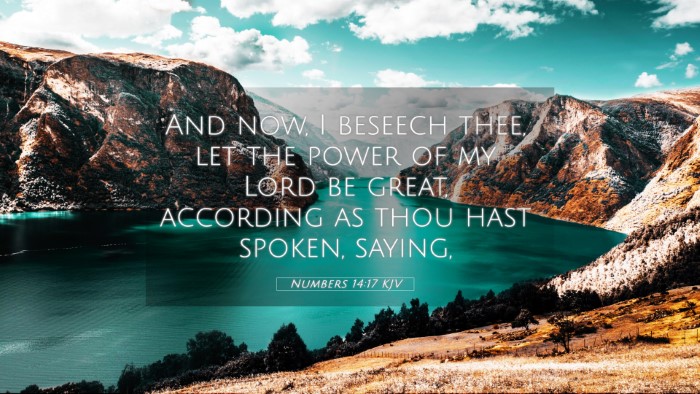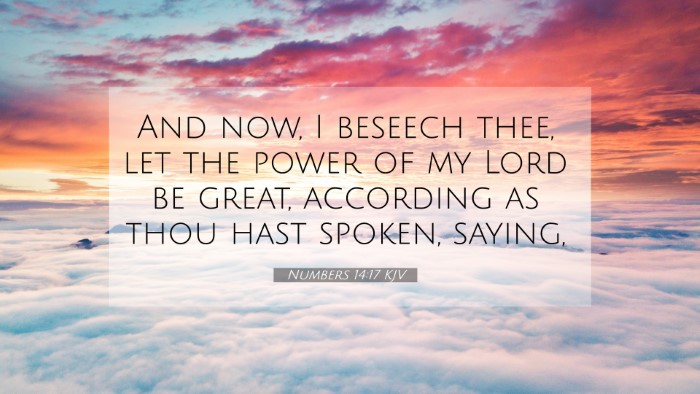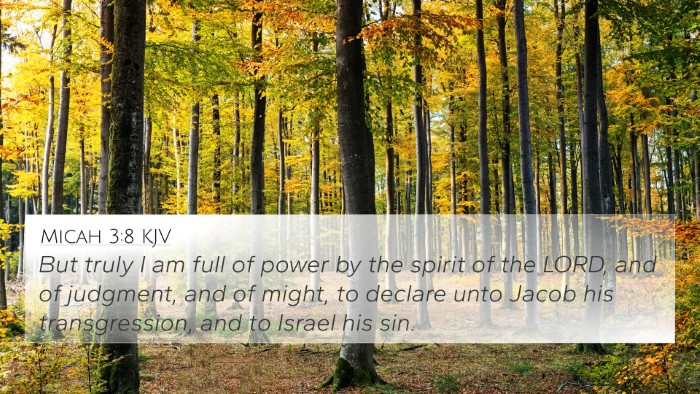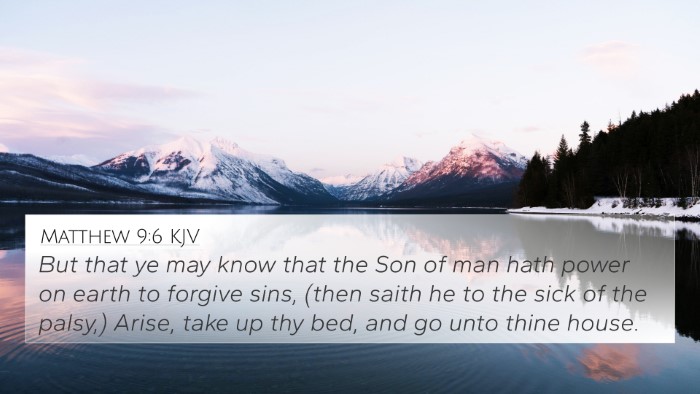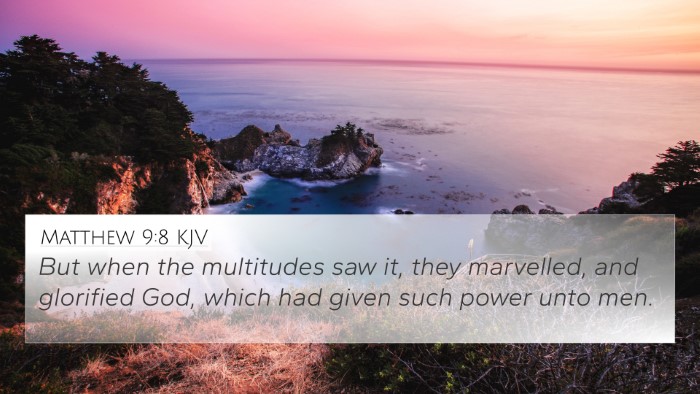Understanding Numbers 14:17
Verse: Numbers 14:17 – "And now, I pray thee, let the power of my Lord be great, according as thou hast spoken, saying,
In this verse, Moses is presenting a plea to God, acknowledging His greatness and mercy in the face of Israel's rebellion. This moment encapsulates themes of intercession, divine justice, and mercy.
Meaning and Context
Commentary Insights:
- Matthew Henry: He notes that Moses stands as a mediator, reliant on God’s promised greatness to appeal for the people. This reflects the covenant relationship where Moses intercedes on behalf of Israel, showcasing God's mercy.
- Albert Barnes: Highlights that Moses is reminding God of His own declarations concerning His power and attributes. It serves as an acknowledgment of the seriousness of the Israelite’s sin but also God’s potential for compassion and mercy.
- Adam Clarke: Emphasizes the significance of Moses seeking God’s power to be demonstrated in forgiveness rather than judgment. This approach illustrates the balance in God’s nature—stressing both justice and mercy.
Key Themes
- Intercession: Moses acts as a mediator, expressing the importance of standing in the gap for others, a role that is significant in Biblical tradition.
- Divine Mercy: The verse highlights the nature of God as compassionate, willing to withhold judgment.
- Covenant Relationship: Reflects the deep relationship between God and His people, where appeals can be made based on their shared history.
Cross-references
To deepen the understanding of Numbers 14:17, consider these cross-referenced verses:
- Exodus 32:11-14 – Moses intercedes on behalf of Israel after the golden calf incident.
- Psalms 103:8-12 – A depiction of God’s mercy and compassion, aligning with Moses' appeal.
- Jeremiah 18:7-10 – God’s willingness to change His mind based on the actions of His people.
- Romans 9:15-16 – Paul reflects on God’s mercy and the role of divine purpose.
- 1 Timothy 2:1 – Calls for intercession, emphasizing the power of prayer for others.
- Hebrews 4:16 – Encouragement to approach God’s throne with confidence, echoing Moses’ plea.
- James 5:16 – The power of prayer of a righteous person, resonating with Moses’ role as an intercessor.
Connections Between Bible Verses
This verse can be seen as part of a broader narrative, pulling together numerous scriptural themes:
- Linking Old Testament mediatorial roles to the ultimate mediator, Jesus Christ (1 Timothy 2:5).
- Comparative analysis of God’s mercy across Scripture, notably in the prophetic books.
- Inter-Biblical dialogue showcasing how the themes of justice and mercy are woven through both Old and New Testament writings.
Thematic Bible Verse Connections
By examining Numbers 14:17 in light of these connections, one can explore:
- Mediation and Intercession: How the role of intercessors is fundamental throughout Scripture.
- God’s Nature: A dive into the balance of justice and mercy, seen in both the Old and New Testaments.
- Covenantal Promises: Understanding the importance of God’s promises to His people and how they shape the relationship He maintains with them.
Applying the Verse
This passage invites modern readers to engage in:
- Prayer as Intercession: Encouraging believers to pray for one another, reflecting the heart of Moses.
- Understanding Divine Nature: Exploring the discrepancies between God’s justice and mercy in personal spirituality.
In exploring Numbers 14:17, readers are encouraged to utilize tools for Bible cross-referencing and consider how this verse establishes connections between scripture that are vital for comprehensive understanding. Such exploration not only enhances individual studies but also deepens communal theological discussions.
Ultimately, characters like Moses serve as examples of righteous intercession, making Numbers 14:17 a critical study point for understanding both our approach to God and His unwavering character.

